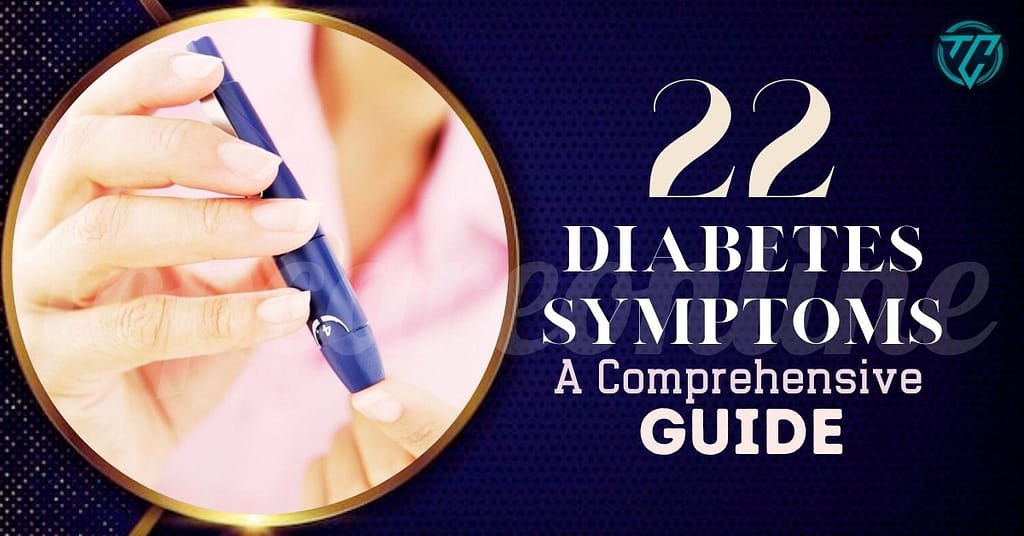What is Diabetes | Common Early Symptoms | Risk Factors | Steps to Take if You Know
What is Diabetes and Its Importance
What are the Early Signs of Diabetes is a must for all to know. Diabetes is a chronic condition characterized by elevated levels of blood glucose due to the body’s inability to produce or effectively use insulin.
It is broadly classified into three main types: Type 1 diabetes, Type 2 diabetes, and gestational diabetes. Type 1 diabetes is typically diagnosed in childhood or adolescence and is marked by the body’s immune system attacking insulin-producing cells. Type 2 diabetes, the most common form, usually develops in adults and is associated with insulin resistance and eventual insulin deficiency. Gestational diabetes occurs during pregnancy and often resolves after childbirth, though it increases the risk of developing Type 2 diabetes later in life.
The importance of early detection of diabetes cannot be overstated. Identifying diabetic symptoms at an early stage enables timely intervention, which is essential for effective management of the disease. Early diagnosis can prevent or delay the onset of serious complications such as cardiovascular disease, kidney failure, and neuropathy.
Get to know
Common Early Symptoms of Diabetes
Recognizing the early signs of diabetes is crucial for timely diagnosis and management. The most common symptoms often indicate the body’s struggle to regulate blood sugar levels effectively. Understanding these symptoms can lead to early intervention and better health outcomes.
- Frequent Urination: One of the earliest and most noticeable symptoms of diabetes is frequent urination, known medically as polyuria. This occurs because the kidneys work overtime to eliminate excess glucose from the bloodstream, resulting in increased urine production.
- Excessive Thirst: Accompanying frequent urination is excessive thirst or polydipsia. As the body loses more fluids through urination, it triggers a constant need to replenish lost fluids, leading to persistent thirst.
- Unexplained Weight Loss: Despite consuming normal or increased amounts of food, individuals with diabetes may experience unexplained weight loss. This happens because the body starts breaking down muscle and fat for energy when it cannot utilize glucose effectively.
- Extreme Hunger: Known as polyphagia, extreme hunger is another common symptom. The body’s cells are deprived of glucose, which increases hunger signals to compensate for the lack of energy.
- Fatigue: Persistent fatigue is a frequent complaint among those with diabetes. Inadequate glucose supply to the body’s cells results in a constant feeling of tiredness and lack of energy.
- Blurred Vision: Elevated blood sugar levels can lead to swollen eye lenses, causing blurred vision. This symptom can fluctuate depending on blood sugar levels and may improve with proper diabetes management.
- Slow-Healing Sores: High blood sugar levels impair the body’s natural healing process. Consequently, individuals with diabetes often notice that cuts, bruises, and sores take longer to heal.
- Frequent Infections: Diabetes can weaken the immune system, making it more susceptible to infections. Frequent skin, gum, or urinary tract infections are common indicators of uncontrolled blood sugar levels.
- Dry skin and itching: Diabetes can cause dry skin, particularly on the feet, which can lead to itching and discomfort.
- Tingling or numbness in hands or feet: Over time, high blood sugar levels can damage nerves, leading to a condition called diabetic neuropathy. This can cause tingling, numbness, or pain, usually starting in the hands and feet.
Awareness of these early diabetic symptoms is essential for recognizing the condition promptly. If you experience any of these symptoms consistently, seeking medical advice is imperative to confirm a diagnosis and develop an effective management plan.
Risk Factors and Who Should Be Concerned
Understanding the risk factors associated with diabetes is crucial for early detection and management. Certain individuals are at a higher risk of developing diabetes, whether it is type 1 or type 2, and recognizing these risk factors can lead to timely interventions.
- Family History: One of the most significant risk factors is having a family history of diabetes. If a parent or sibling has diabetes, the likelihood of developing the condition increases substantially. This is particularly true for type 2 diabetes but can also be relevant for type 1 diabetes.
- Obesity: Excess body weight is a major risk factor, especially for type 2 diabetes. Obesity can lead to insulin resistance, where the body’s cells do not respond properly to insulin, resulting in elevated blood sugar levels. It is important to maintain a healthy weight through diet and exercise to mitigate this risk.
- Sedentary Lifestyle: Physical inactivity is another critical risk factor. A sedentary lifestyle can contribute to weight gain and insulin resistance. Regular physical activity helps the body use glucose more efficiently and can significantly reduce the risk of developing diabetes.
- Age: Age is a non-modifiable risk factor; the risk of developing type 2 diabetes increases with age, particularly after 45. However, type 1 diabetes can develop at any age, though it is more commonly diagnosed in children and young adults.
- Ethnic Background: Certain ethnic groups are at a higher risk of diabetes. For example, African Americans, Hispanic/Latino Americans, Native Americans, Asian Americans, and Pacific Islanders have a higher prevalence of diabetes compared to non-Hispanic whites.
Given these risk factors, individuals with multiple risk factors should consider regular screening for diabetes even if they are not currently showing any diabetic symptoms. Early identification and management of prediabetes or diabetes can prevent serious complications and improve quality of life.
Steps to Take if You Know What are the Early Signs of Diabetes
If you know What are the Early Signs of Diabetes and you begin to notice early symptoms of diabetes, such as increased thirst, frequent urination, unexplained weight loss, or persistent fatigue, it is crucial to take immediate action. Early detection and intervention are key to managing the condition effectively and preventing complications.
- Healthcare provider: The first step is to schedule an appointment with your healthcare provider. They will likely recommend a series of tests to confirm whether you have diabetes. Common diagnostic tests include the fasting blood glucose test, the hemoglobin A1c test, and the oral glucose tolerance test. These tests measure your blood sugar levels and help to determine if you have type 1 or type 2 diabetes.
- Early intervention: Early intervention is vital. If diagnosed with diabetes, your doctor will work with you to develop a management plan tailored to your needs. This plan often includes lifestyle changes, medication, and regular monitoring of blood sugar levels. For those identified as prediabetic, making proactive changes can often reverse the condition and prevent the onset of type 2 diabetes.
- Diet modifications: Diet modifications are essential in managing diabetes. A balanced diet rich in whole grains, fruits, vegetables, and lean proteins can help regulate blood sugar levels. Avoiding high-sugar and high-fat foods is equally important. Consulting with a nutritionist can provide personalized guidance and meal planning strategies.
- Physical activity: Increased physical activity is another cornerstone of diabetes management. Regular exercise helps to lower blood sugar levels, improve insulin sensitivity, and support weight management. Aim for at least 150 minutes of moderate-intensity aerobic activity, such as walking or cycling, each week.
- Weight management: Weight management is particularly crucial for those with type 2 diabetes symptoms. Maintaining a healthy weight can significantly improve blood sugar control and reduce the risk of complications. Combining a balanced diet with regular physical activity is the most effective approach to achieving and maintaining a healthy weight.
By taking these steps promptly, individuals can better manage or even reverse early signs of diabetes, thereby improving their overall health and quality of life.
So if you know What are the Early Signs of Diabetes, please stay alert and take necessary steps to stay healthy for your loved once.



